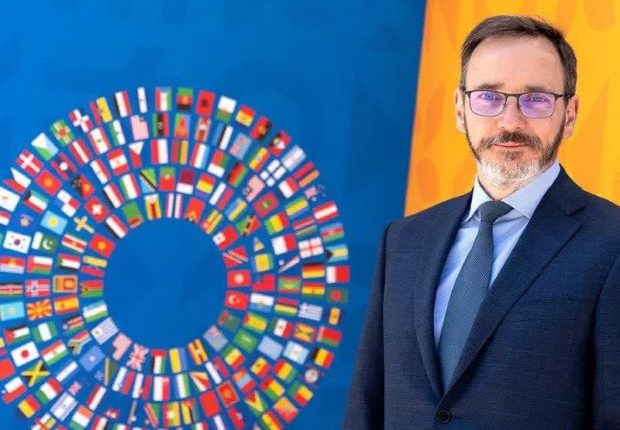IMF warns global recession could soon be at hand
By Alan Rappeport
WASHINGTON – The International Monetary Fund (IMF) warned Tuesday (26) that the world could soon be on the brink of a global recession as economic slowdowns in the United States, Europe and China along with twin food and energy crises weighed heavily on growth.
In an update of the World Economic Outlook, the IMF said economic prospects had darkened significantly in recent months as war in Ukraine, inflation and a resurgent pandemic inflicted pain on every continent. If the thicket of threats continues to intensify, the world economy faces one of its weakest years since 1970, a period of intense stagflation across the globe.
“The world may soon be teetering on the edge of a global recession, only two years after the last one,” Pierre-Olivier Gourinchas, the IMF’s chief economist, wrote in a blog post accompanying the report.
The IMF downgraded its global growth forecasts from its April projections, predicting that output will fall to 3.2% in 2022, from 6.1% last year. With central banks around the world raising interest rates to tame inflation, growth is expected to slow further next year.
Inflation is also rising more rapidly and broadly than the IMF anticipated earlier this year. It now expects prices to rise 6.6% in rich countries and 9.5% in emerging markets and developing economies.
The economic storm facing the world is the result of diminished consumer spending power in the United States, the effects of Russia’s invasion of Ukraine on Europe’s economies, and the property crisis and lockdowns in China, where Beijing continues to take severe measures to contain coronavirus outbreaks.
The IMF underscored that its forecasts are subject to considerable uncertainty and that more downgrades could come. It pointed to the prospect of a sudden shutdown of Russian gas flows to Europe, the stubborn persistence of inflation and more widespread lockdowns in China as looming threats.
“Under this scenario, both the United States and the euro area experience near-zero growth next year, with negative knock-on effects for the rest of the world,” Gourinchas said.
According to the report, the likelihood of a global recession is rising. It said the probability of a recession starting in one of the Group of 7 advanced economies was now nearly 15%, four times higher than its usual level. And it said some indicators suggested that the United States was already in a “technical” recession, which the IMF defines as two consecutive quarters of negative growth.
Data to be released Thursday (28) is expected to show that the US economy grew little or perhaps shrank in the second quarter of 2022.
The Federal Reserve is expected to raise interest rates by three-quarters of a percentage point Wednesday (27) as it tries to slow the economy and tame rapid inflation. While the Fed is aiming for a “soft landing” — in which it cools the economy just enough without tipping it into a recession — policymakers have acknowledged that pulling that off will be a challenge.
The darkening economic prospects in the United States and abroad pose trouble for President Joe Biden and his Democratic Party before midterm elections that will determine who controls Congress.
On Monday (25), Biden made the case that the United States was not in a recession and that its economy remained strong.
“We’re not going to be in a recession, in my view,” he said, pointing to the low jobless rate and expressing hope that growth will stay steady even as it slows. “God willing, I don’t think we’re going to see a recession.”
The IMF noted that growth in the United States had been weaker than expected in the first half of the year and that there was “significantly less momentum” in private consumption because of inflation and the expectation of higher borrowing costs.
In a twist, while the IMF downgraded most economies, Russia’s economy is now expected to shrink 6% this year rather than the previously forecast 8.5%. The IMF said Russian oil and nonenergy exports were holding up better than expected and that Western sanctions were not having as much bite as expected.
“Domestic demand is also showing some resilience thanks to containment of the effect of the sanctions on the domestic financial sector and a lower-than-anticipated weakening of the labour market,” the IMF report said.
-New York Times


